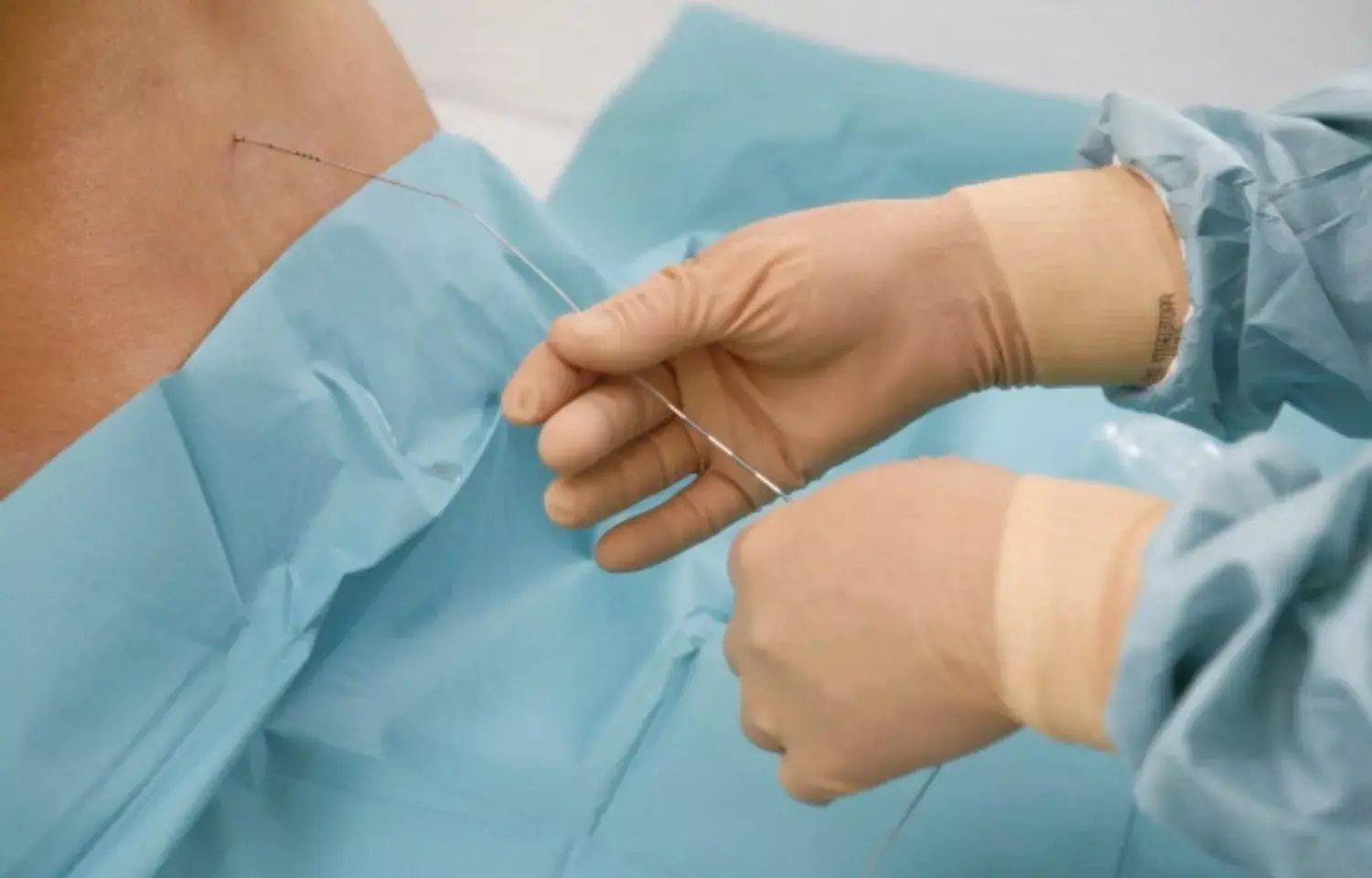- Home
- Medical news & Guidelines
- Anesthesiology
- Cardiology and CTVS
- Critical Care
- Dentistry
- Dermatology
- Diabetes and Endocrinology
- ENT
- Gastroenterology
- Medicine
- Nephrology
- Neurology
- Obstretics-Gynaecology
- Oncology
- Ophthalmology
- Orthopaedics
- Pediatrics-Neonatology
- Psychiatry
- Pulmonology
- Radiology
- Surgery
- Urology
- Laboratory Medicine
- Diet
- Nursing
- Paramedical
- Physiotherapy
- Health news
- Fact Check
- Bone Health Fact Check
- Brain Health Fact Check
- Cancer Related Fact Check
- Child Care Fact Check
- Dental and oral health fact check
- Diabetes and metabolic health fact check
- Diet and Nutrition Fact Check
- Eye and ENT Care Fact Check
- Fitness fact check
- Gut health fact check
- Heart health fact check
- Kidney health fact check
- Medical education fact check
- Men's health fact check
- Respiratory fact check
- Skin and hair care fact check
- Vaccine and Immunization fact check
- Women's health fact check
- AYUSH
- State News
- Andaman and Nicobar Islands
- Andhra Pradesh
- Arunachal Pradesh
- Assam
- Bihar
- Chandigarh
- Chattisgarh
- Dadra and Nagar Haveli
- Daman and Diu
- Delhi
- Goa
- Gujarat
- Haryana
- Himachal Pradesh
- Jammu & Kashmir
- Jharkhand
- Karnataka
- Kerala
- Ladakh
- Lakshadweep
- Madhya Pradesh
- Maharashtra
- Manipur
- Meghalaya
- Mizoram
- Nagaland
- Odisha
- Puducherry
- Punjab
- Rajasthan
- Sikkim
- Tamil Nadu
- Telangana
- Tripura
- Uttar Pradesh
- Uttrakhand
- West Bengal
- Medical Education
- Industry
Intercostal nerve block effective as epidural analgesia post thoracotomy

A new study by Zangong Zhou and team showed that after a thoracotomy, intercostal nerve block (ICB) may be just as helpful in relieving pain as Epidural analgesia (EPI). The findings of this study were published in Pain Physician Journal.
Thoracotomy is linked to severe postoperative discomfort. After a thoracotomy, effective pain management may lessen complications and persistent discomfort. Even while epidural analgesia is regarded as the ideal form of pain relief following a thoracotomy, it has drawbacks. An intercostal nerve block offers a minimal risk of serious consequences, according to newly available research. An evaluation of the benefits and drawbacks of ICB and EPI during thoracotomy would be helpful to anesthetists. This meta-analysis examined the effectiveness of ICB and EPI as analgesics and their side effects when used to alleviate pain following thoracotomy.
The International Prospective Register of Systematic Reviews received this study's registration. The databases PubMed, Cochrane, Embase, and Ovid were searched for pertinent papers. Analysis was done on the primary (postoperative pain when coughing and at rest) and secondary (morphine intake, nausea, and length of hospital stay) outcomes. Calculations were made to determine the risk ratio for dichotomous variables and the standard mean difference for continuous variables.
The key findings of this study were:
1. There were 498 individuals who received thoracotomies in nine randomized controlled trials.
2. The meta-analysis's findings showed that there were no statistically significant variations between the 2 procedures in terms of pain levels on the Visual Analogue Scale at 6–8, 12–15, 24–25, and 48–50 hours following surgery when resting and at 24 hours when coughing.
3. The ICB and EPI groups did not vary significantly in terms of morphine intake, nausea and vomiting, or hospital stay duration.
Reference:
Zhou, Z., Zheng, X., Song, J., Jin, X., Zhao, L., & Liu, S. (2023). Comparison of Intercostal Block and Epidural Analgesia for Post-thoracotomy: A Systematic Review and Meta-analysis of Randomized Controlled Trials. Pain physician, 26(3), 219–229.
Neuroscience Masters graduate
Jacinthlyn Sylvia, a Neuroscience Master's graduate from Chennai has worked extensively in deciphering the neurobiology of cognition and motor control in aging. She also has spread-out exposure to Neurosurgery from her Bachelor’s. She is currently involved in active Neuro-Oncology research. She is an upcoming neuroscientist with a fiery passion for writing. Her news cover at Medical Dialogues feature recent discoveries and updates from the healthcare and biomedical research fields. She can be reached at editorial@medicaldialogues.in
Dr Kamal Kant Kohli-MBBS, DTCD- a chest specialist with more than 30 years of practice and a flair for writing clinical articles, Dr Kamal Kant Kohli joined Medical Dialogues as a Chief Editor of Medical News. Besides writing articles, as an editor, he proofreads and verifies all the medical content published on Medical Dialogues including those coming from journals, studies,medical conferences,guidelines etc. Email: drkohli@medicaldialogues.in. Contact no. 011-43720751


